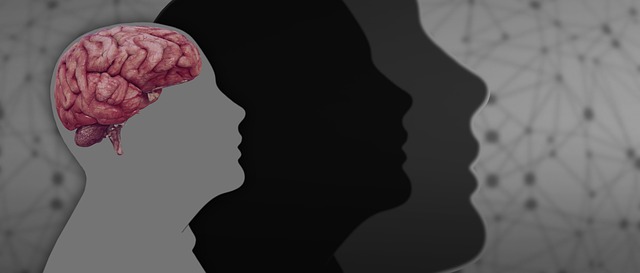Emotional intelligence (EI) is a vital asset in healthcare, particularly in Colorado Springs OCD therapy, as it enhances patient care through self-awareness exercises, empathy development, and effective emotional management. By recognizing emotions, cultivating mindfulness, and implementing stress management techniques, therapists enable patients to navigate their OCD challenges with improved relationships, communication, and decision-making skills, ultimately fostering better mental health outcomes. These strategies are integral to the success of Colorado Springs Obsessive Compulsive Disorder therapy, promoting personal growth and well-being.
In today’s fast-paced world, emotional intelligence (EQ) is a powerful tool for personal and professional success. Colorado Springs obsessive-compulsive disorder therapy has highlighted the importance of understanding and managing emotions. This article delves into the key components of building EQ, focusing on self-awareness, empathy, emotion regulation, and mindfulness. By exploring these areas, individuals can unlock their full potential, foster healthier relationships, and navigate life’s challenges with greater resilience.
- Understanding Emotional Intelligence: Unlocking Its Potential
- The Role of Self-Awareness in Building Emotional Intelligence
- Developing Empathy: A Cornerstone for Healthy Relationships
- Managing Emotions Effectively: Strategies for Regulation
- Practicing Mindfulness: Enhancing EQ Through Awareness
Understanding Emotional Intelligence: Unlocking Its Potential

Emotional intelligence (EI) is a powerful concept that has gained significant attention in recent years, especially in fields like Colorado Springs OCD therapy. Understanding EI involves recognizing and managing one’s own emotions, as well as comprehending and empathizing with the feelings of others. This multifaceted skill set is crucial not just for personal growth but also for success in various professional settings. By cultivating emotional intelligence, individuals can enhance their relationships, improve communication, and make more thoughtful decisions.
In the context of healthcare, especially when dealing with complex issues like OCD, cultural competency training plays a vital role. This involves learning to navigate diverse emotional landscapes and providing compassionate care tailored to each patient’s unique needs. Self-awareness exercises and mood management techniques are integral parts of this process, enabling healthcare providers to offer more effective support. These skills ensure that patients feel understood, validated, and empowered in their journey towards healing.
The Role of Self-Awareness in Building Emotional Intelligence

Self-awareness is a cornerstone of emotional intelligence, enabling individuals to recognize and understand their emotions, thoughts, and behaviors. This fundamental aspect plays a pivotal role in personal growth and effective communication. By cultivating self-awareness, one can gain valuable insights into their unique emotional responses, triggers, and patterns—a process often facilitated through Colorado Springs obsessive-compulsive disorder therapy or similar interventions.
Developing this inner knowledge allows for better emotional regulation and stress management. Individuals become more attuned to their feelings, enabling them to make conscious choices in response to various situations. This is particularly relevant in healthcare settings where cultural competency training emphasizes the importance of understanding one’s biases and emotions to provide empathetic care. Effective emotional intelligence, including heightened self-awareness, fosters healthier relationships and improves overall well-being, making it a crucial skill to nurture.
Developing Empathy: A Cornerstone for Healthy Relationships

Developing empathy is a cornerstone for building healthy relationships, as it allows individuals to understand and share the feelings of others. This skill is crucial in various contexts, from personal interactions to professional settings, even in Colorado Springs obsessive-compulsive disorder therapy. By cultivating empathy, individuals can foster deeper connections, improve communication, and enhance emotional well-being. It helps in recognizing and respecting diverse perspectives, which is essential for effective conflict resolution and teamwork.
In the realm of mood management and risk management planning for mental health professionals, empathy plays a significant role. It enables therapists to connect with clients on a deeper level, understand their unique experiences, and tailor interventions accordingly. Promoting emotional well-being through empathy not only benefits individuals in therapy but also extends to daily life, where it can enhance relationships, improve social interactions, and contribute to overall mental health.
Managing Emotions Effectively: Strategies for Regulation

Managing emotions effectively is a cornerstone of emotional intelligence building. It involves recognizing and understanding one’s own feelings, as well as those of others, and responding to them in a healthy and constructive manner. In Colorado Springs, Obsessive Compulsive Disorder (OCD) therapy offers valuable insights into emotion regulation strategies. Therapists help individuals identify triggers, develop coping mechanisms, and cultivate mindfulness to better navigate their emotional landscapes. This process not only enhances mental health awareness but also empowers individuals to promote their emotional well-being.
Emotional well-being promotion techniques, such as meditation, deep breathing exercises, and cognitive reframing, are integral parts of this journey. Through community outreach program implementations, resources and support become more accessible, fostering an environment where people can openly discuss and address their emotional challenges. By integrating these strategies into daily life, individuals can improve their ability to manage stress, reduce anxiety, and foster healthier relationships, ultimately enhancing their overall quality of life.
Practicing Mindfulness: Enhancing EQ Through Awareness

In the journey to build emotional intelligence, mindfulness practices play a pivotal role. These techniques encourage individuals to cultivate present-moment awareness, a cornerstone of enhancing EQ (Emotional Quotient). By focusing on the here and now, one can better understand their emotions, recognize triggers, and develop a deeper sense of self-awareness—all essential components for managing and regulating feelings effectively. This heightened awareness allows folks in Colorado Springs Obsessive Compulsive Disorder Therapy to make more thoughtful decisions, fostering healthier interactions with others.
Compassion cultivation practices, often integrated into Stress Management Workshops Organization programs, further complement mindfulness. Encouraging individuals to approach their emotions with kindness and non-judgmental acceptance promotes emotional resilience. This aspect of EQ is particularly relevant in diverse communities, highlighting the importance of cultural sensitivity in mental healthcare practice. Through these mindfulness exercises, individuals can develop a more profound understanding of themselves and others, ultimately contributing to stronger interpersonal connections and improved overall well-being.
Emotional intelligence is a powerful tool for personal growth and healthy relationships, as evidenced by its potential to transform lives in Colorado Springs obsessive-compulsive disorder therapy. By understanding and practicing self-awareness, empathy, emotion regulation, and mindfulness, individuals can unlock their full potential and create more meaningful connections. This journey of emotional discovery is accessible to all, offering a path toward greater well-being and fulfillment.













